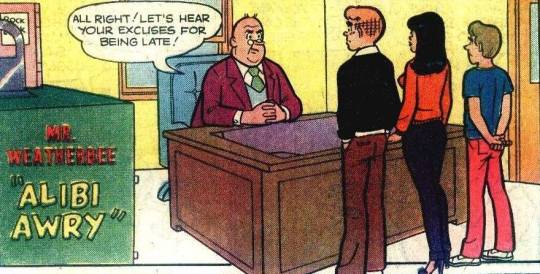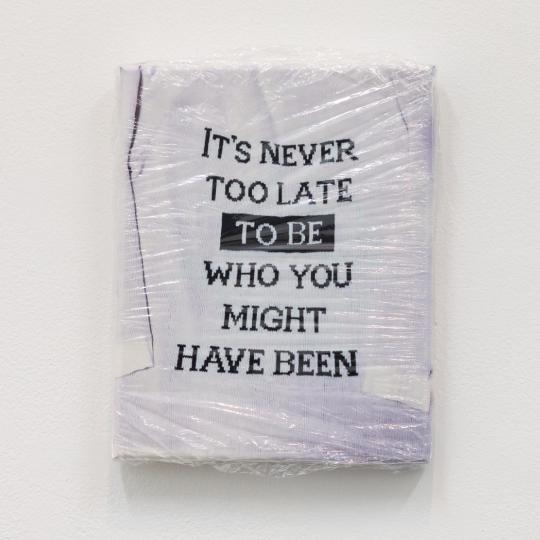#Lateness
Text

Marguerite Duras, The Lover
5K notes
·
View notes
Text
I cannot remember the last time I had plans with friends that involved picking me up and I didn't get a text shortly before the appointed time that was like "hey sorry I slept in/felt bad not helping my parents with something/another Fully Preventable Thing and I'm going to be [anywhere from 20 minutes to an hour late]!"
and I know I shouldn't complain because picking me up is very kind of them
but like. it's getting really old and it stresses me out to no end. I don't understand how I'm almost always capable of being where I need to be at the appointed time and it feels like nobody else is.
brought to you by: I have been sitting here ready for an hour and twenty minutes now and my friends are STILL not here yet. and we're going to something where parking fills up EARLY and I'm so stressed that I'm on the verge of tears, about us maybe not getting parking
I hate plans changing. I hate upheaval. and I get it if it's impossible to avoid, like a breakdown of a car or something, but- you didn't have to stop and help your parents paint a fence if you had somewhere to be! you didn't have to stay up late! none of this is ever unavoidable!
#personal#lateness#punctuality#I'm going to have to reapply my sunscreen before we even get to the place at this rate. this is insane.
133 notes
·
View notes
Text
we're sorry we are one day late to IAD, 2023
#today on tumblr#asexual#IAD#asexuality awareness day#2023#forgiveness#lateness#sorry#ace#all is ace#you are ace#we are ace#demisexual#lgbtq community#lgbtqia
1K notes
·
View notes
Text
"As scripts easily generate endless iterations of varied forms, the difference between one form and another is no longer a critical integer but instead the output of a totalizing mathematical process. Any formal complexity in this context becomes normative and thereby ineffective as a mode of resistance to power. Moreover, form can be generated today without concern for constructability, because advances in digital software are paired with ever-more-sophisticated building technologies. With constructability becoming less of a concern, contemporary architecture produces increasingly more exuberant forms, each one just as anomalous as the last, creating a conceptual milieu that is ultimately homogeneous, despite any specific differences between individual forms.What capacity does architecture have to be critical in this context? While it is tempting to identify the problem as an infatuation with software, perhaps the problem lies in the inherent attitude around time that the digital presents. The techno-zeitgeist of today has returned to a present-based avant-garde, one in which the limits of form are defined by the technical possibilities of the present and in which time might be the integer of possible resistance. If this is so, what might a different attitude toward time look like? For this, it is possible perhaps to turn to Theodor Adorno’s study of Beethoven’s late works. Adorno finds in Beethoven’s late works a return to classical conventions after a long period of rejecting them almost entirely, and yet this classical recapitulation does not follow formulaic classical structures. Instead, Beethoven introduces caesuras and ruptures between classical conventions, and as such, he identifies the fragment as a formal idea, which informs the path that music and other disciplines take in the nineteenth and twentieth century. But Adorno’s analysis is of interest not simply because he succeeds in identifying a formal change that marked the beginning of a new period in musical history, but rather because Beethoven’s unusual treatment of classical conventions problematizes the existing relationship between form and time. The classical conventions that appear in the work inevitably embody a temporal dimension, due to their emergence within a specific historical context and their corresponding associations with particular styles. Yet because of gaps and breaks between these conventions, the classical elements no longer follow the formulaic sequence of classical form, and are thereby transformed from stylistic determinants to autonomous fragments within a work. Untethered from style, they become possibly unbound from time. So, in a way, Beethoven’s late works were neither imitative nor innovative. Instead they rewrote the relationship between the parts of classical form through an approach that did not rely purely on formal anomaly to break from the past, but that disrupted temporal continuity by breaking up the narrative sequence of a piece, and in so doing, questioning the historical context within which the work unfolds. Beethoven’s work looks neither forward nor backward in time, but rather sits outside a temporal progression. Anachronisms no longer operate as historical reference; as fragments they acquire a different capacity to identify with other moments and other eras—including those that had not yet occurred.Adorno called this phenomenon lateness, and it is different from the modern relationship to history, which focused on a break with precedent, and different from the postmodern relationship to history, which focused on citation and a return to past historical styles. Instead, lateness exhibits temporal ambiguity. The result is something nondialectical, not of the zeitgeist, and not of the avant-garde. Late works are neither of the present nor of the past. They are, as literary critic Edward Said wrote, in and apart from the present."
Lateness
3 notes
·
View notes
Text
Excuses

At first I think maybe the technology shift changed the narrative, but that actually does not hold up under scrutiny.

Something of the editor stopping to ask -- "Wait. Do kids still use clock radios?", and deciding " may as well change it". And fit the person while they are at it. Maybe with the random dude they needed something Mr. Weatherbee would buy -- he experienced the blackout too.

#Archie Comics#Archie Andrews#Veronica Lodge#Some guy#Mr. Weatherbee#Lateness#Excuses#Clock radio#Nail#blackout#1980#Dan Decarlo Jr(?)
3 notes
·
View notes
Text

#duck rants about something#im so fecked#thank u @iwantmorelife for the image id !!!#edit before you tell me ''this isnt even relatable'' its not meant to be. i made this to complain about sleeping in before class and ending#up late every time. peace and love
140K notes
·
View notes
Text

I haven't seen this circulating here on Tumblr, so I decided to make my own post.
last saturday, in Porto, there was a pride parade going down the street and this old man was standing there, by his front door, waving the portuguese flag. most people on the parade probably thought the same: old person waving the national flag? he's probably protesting against the parade, he's a nationalist of some sort.
then the old man called for that person to come near him. the whole parade stopped. everyone just.. stopped moving. they didn't know what to expect, and most expected the worst. and that person decided to give him the benefit of the doubt and approached the old man. and then... they traded flags, he hugged the person and then he waved the pride flag happily. everyone cheered him.
such a wholesome moment. 🥹❤️🌈

(edited to add the link to the video, in case the twitter post gets deleted or smth)
89K notes
·
View notes
Text

hi this is a comic about me please be nice
#ive been feeling INVALIDATED LATELY ✨ by some fandom discourse about long hair and gender idk man idk IDK!!!!!!#← this is a comic about that#samposting#comic#my art#nonbinary#ok.... thanks guys#gender#trans#queer
61K notes
·
View notes
Text
Tips for writing those gala scenes, from someone who goes to them occasionally:
Generally you unbutton and re-button a suit coat when you sit down and stand up.
You’re supposed to hold wine or champagne glasses by the stem to avoid warming up the liquid inside. A character out of their depth might hold the glass around the sides instead.
When rich/important people forget your name and they’re drunk, they usually just tell you that they don’t remember or completely skip over any opportunity to use your name so they don’t look silly.
A good way to indicate you don’t want to shake someone’s hand at an event is to hold a drink in your right hand (and if you’re a woman, a purse in the other so you definitely can’t shift the glass to another hand and then shake)
Americans who still kiss cheeks as a welcome generally don’t press lips to cheeks, it’s more of a touch of cheek to cheek or even a hover (these days, mostly to avoid smudging a woman’s makeup)
The distinctions between dress codes (black tie, cocktail, etc) are very intricate but obvious to those who know how to look. If you wear a short skirt to a black tie event for example, people would clock that instantly even if the dress itself was very formal. Same thing goes for certain articles of men’s clothing.
Open bars / cash bars at events usually carry limited options. They’re meant to serve lots of people very quickly, so nobody is getting a cosmo or a Manhattan etc.
Members of the press generally aren’t allowed to freely circulate at nicer galas/events without a very good reason. When they do, they need to identify themselves before talking with someone.
#late night thoughts#are these helpful at all?#obv these aren’t applicable to every gala scene#galas#writing tips#writing guide#these don’t apply as much in Gotham obvs#but that’s because it’s Gotham
87K notes
·
View notes
Text

#poverty#homelessness#capitalism#housing crisis#welfare#classism#class war#late stage capitalism#class warfare#eat the rich#vote blue#vote democrat#please vote#voting#election 2024#get out the vote#american politics#us elections#kamala harris#vote kamala#kamala 2024#kamala for president#harris#president#election#presidency#vote harris#harris 2024#kamala#tim walz
41K notes
·
View notes
Text
I don’t WANT a career. I want to cuddle and sleep and eat and read and create and love and be loved.
#Feeling like a grumpy anticapitalist hobbit lately#… so#a hobbit#Ughhhhhh#Bored at work and longing for home#20k
44K notes
·
View notes
Text
he can infodump so deep inside me I'll have trivia running down my leg
75K notes
·
View notes
Text

#leftism#anti capitalism#socialism#communism#anarchy#capitalism#eat the rich#twitter x#late stage capitalism#leftist#anarchism
108K notes
·
View notes
Text

The cat and the dad she said she "didn't want"
#dungeon meshi#dunmeshi#izutsumi#chilchuck tims#i drew something#hi i've been busy exploding and dying lately#i'm trying my best to get my millions of wips to postable states#izutsumi is so hard for me to draw but that won't stop me i love babykitty
43K notes
·
View notes
Text


"never too late to be who you might have been" by sara yukiko mon | still from i saw the tv glow, "there is still time"
#art#sara yukiko mon#i saw the tv glow#never too late to be who you might have been#there is still time#i've been thinking about that movie a bit i guess
42K notes
·
View notes
Text

Lol
51K notes
·
View notes